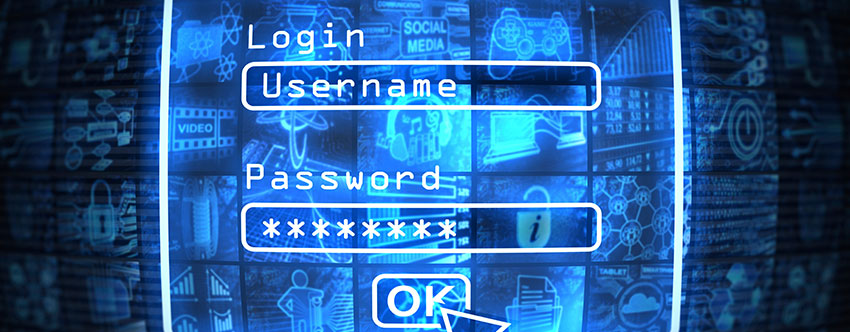All About Passwords, Firewalls, and Security
Passwords
Keeping your information and accounts confidential, helps prevent you from being a victim of fraud. Having a secure password is a very important factor in this. Following are suggestions on keeping your password confidential.
Do not use words or phrases that others will guess such as children names, pet names, and addresses, etcetera. Also, we don’t advise using the same password at every site you visit. Should a hacker successfully figure out your password, they will then have access to every site that you use that same username and password, compromising much of your personal information.
Use numbers where you would normally have a letter. For example, instead of using an, “e,” or “E,” use a “3.” Or replace an “O,” with a zero.
Do not change your passwords frequently. For the most part, if you have a secure password you should not change it. Changing a strong password that is already considered safe and secure could result in choosing a weaker password which would render it less secure. On the other hand, if you have been or are compromised with people having access to your password, you may want to change it more frequently.
Firewalls
A firewall is, “a system designed to prevent unauthorized access to or from a private network.” (Ref. http://www.webopedia.com/TERM/F/firewall.html). It can be software or hardware that prevents users from going to certain sites, prevents outside server traffic from entering the private network or both. If a computer from the private network initiates contact with a malicious site however, that communication will be identifiable by the user’s network and may allow access. Caution should be exercised when clicking an unknown link or visiting unfamiliar sites. In a business environment, companies will often control what employees can access on the web, while residential use is usually more about preventing malware and or viruses from entering.
Residential routers often have a built-in firewall and it’s just a matter of enabling them. This helps to protect the user not only from viruses and malware but also hackers. Many business model routers have firewalls that not only allow companies to control inbound traffic, but also outbound traffic of employees by prohibiting specific web browsing.
There are many software style firewall programs. Both Windows computers and Apple computers come with built-in firewall programs. By default, Apple computers come with the firewall disabled, and Windows computers come with the firewall enabled. It’s important to make sure that the firewall that is installed on your computer is running and active.
Security
When most computer users think of security while on the internet, the first thing that typically comes to mind is their anti-virus program. With so many of these programs available, it can be very confusing. The two most popular anti-virus programs are Norton and MacAfee. These need to be purchased in order to update them on a yearly basis. However there are also several free options that are quite good that we’d like to share with you. For Windows operating systems, three good ones are Microsoft Security Essentials, AVG Free, and Avast. These also happen to be the first three that pop up when you Google, “Free antivirus for windows. Be certain to research them to find the one that best suits your needs.
Website browsing is not the only way to be affected by hackers or viruses. Phishing, is another common way for hackers to attempt to access your personal information. Phishing is when hackers use electronic communication, such as an email, that looks legitimate and contains links to malicious websites. An end-user clicks on one of these links and malware is installed on their machine. After the end-user clicks on that link, the hacker’s job is done. They now have a program running on that computer that could potentially track and record sensitive information.
General Internet security is very important, especially as computer and Internet technology become more advanced. Being secure on the Internet keeps us free from viruses, malware, spyware, and also keeps our sensitive information safe from nefarious activity. If you continue to protect your password, practice safe browsing habits, and maintain an anti-virus on your computer, you will be less likely to become a victim of fraud.

